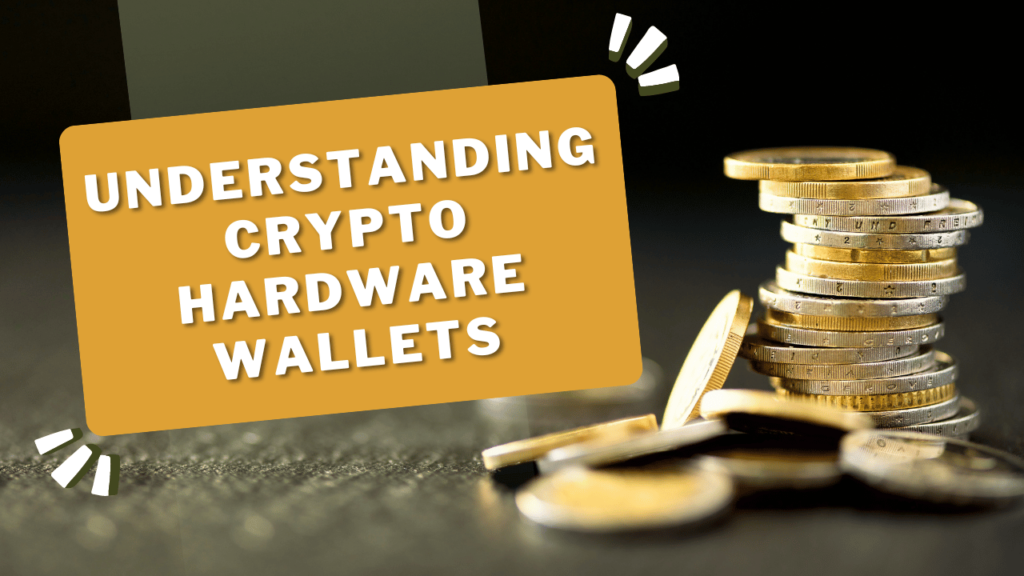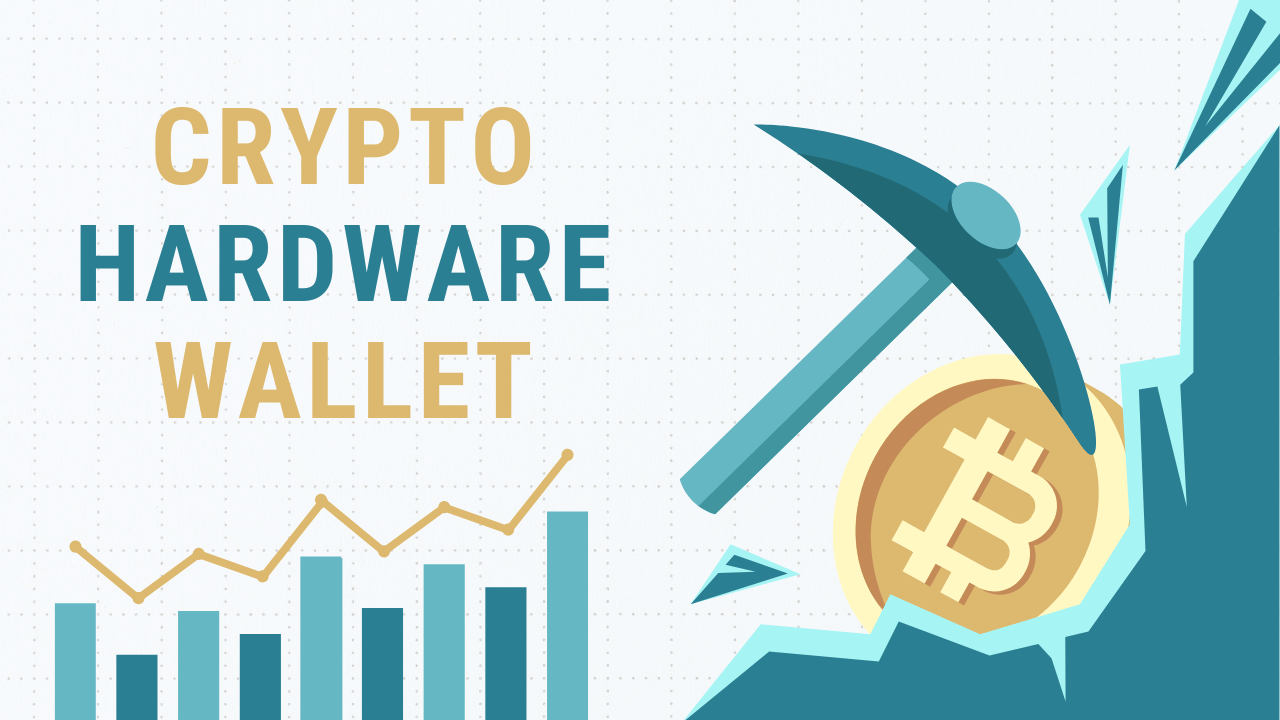Protecting one’s cryptocurrency assets is of the utmost importance in the dynamic world of digital currencies. Digital asset security has reached new heights with the introduction of crypto hardware wallets, which offer users an extra degree of protection. This all-inclusive guide explores crypto hardware wallets in detail, shedding light on their relevance, features, and the extra security they provide. We hope to generate enthusiasm for these devices and a deeper understanding of their significance in the current cryptocurrency ecosystem by delving into their innovative features and user-centric designs.
Understanding Crypto Hardware Wallets

Essence of Cold Storage Solutions
The ability to store cryptocurrency in cold storage is fundamental to the security model of a hardware wallet. Devices like these drastically lessen the opportunity for hackers to gain access by keeping users’ private keys offline. Cold storage is defined in this section, and how it differs from the more exposed “hot” storage methods used online. Cold storage provides a safe haven for digital assets, reducing the risks of internet-connected wallets and protecting them from cyber theft and unauthorized access.
Secure Digital Wallet Design
Hardware wallets for cryptocurrencies are incredibly well-thought-out, combining security with ease of use. These devices, which look like USB thumb drives, can be plugged into a computer to conduct transactions while protecting the private keys from internet vulnerabilities. In this section, we’ll look at the design and UI aspects of hardware wallets that contribute to their security and usability. Making sure that even users without much technical understanding can manage their digital assets efficiently requires careful attention to the balance between strong security measures and the requirement for an easy-to-use interface.
Cryptocurrency Hardware Security Features
The extensive security features of crypto hardware wallets are the reason for their superior security. These devices use a multi-pronged strategy to safeguard users’ private keys and transactions, utilizing advanced encryption protocols and secure chip technology. In order to show how hardware wallets are protected from theft and tampering, this section takes a look at its most important security features, such as secure element (SE) chips, two-factor authentication (2FA), and personal identification numbers (PINs).
Private Key Storage and Management
One of the most important features of a hardware wallet is its offline storage and management of private keys. This section explores the inner workings of hardware wallets, which prevent private keys from escaping the device or falling victim to cybercriminals. The significance of private key management in safeguarding cryptocurrency assets is emphasized by its coverage of secure key generation, storage, and the seed phrase’s role in backup and recovery procedures.
Multi-Currency Support and Integration
As a single platform for managing a diverse portfolio of digital assets, the capacity of modern crypto hardware wallets to support multiple cryptocurrencies is one of their appealing features. This section of the article focuses on hardware wallets’ capacity to hold multiple currencies, explaining how they can accommodate different blockchain protocols and tokens. To further improve the wallet’s utility and adaptability for users wishing to interact with a diverse array of cryptocurrencies, it also discusses the integration with third-party apps and exchanges.
Security Practices for Hardware Wallets
There is more to protecting cryptocurrency assets than just having a hardware wallet. If we want to make the most of these devices, we need to make sure they’re secure enough to withstand both outside attacks and human mistake. Here we’ll take a look at some of the most important security measures that any hardware wallet user should take.
Backup Solutions and Seed Phrase Recovery
Hardware wallets rely on reliable backup and recovery procedures as their foundation for strong security measures. Your digital wealth is protected by a seed phrase, which is usually between twelve and twenty-four words long. The significance of keeping the seed phrase in a secure location that can only be accessed by the wallet owner is emphasized in this subsection. There are ways to keep your seed phrases safe from physical harm, loss, and prying eyes in this guide.
Regular Firmware Updates
To maintain security, hardware wallets, like any other piece of technology, need to be updated regularly. Important security improvements and bug fixes are frequently included in firmware updates, which are crucial for the device’s continued integrity. Ensuring compatibility with new features and protecting against newly discovered vulnerabilities, this subsection will guide users on how to safely perform firmware updates.
Safe Transaction Practices
To guarantee the safety of digital assets, there are specific procedures to follow when using a hardware wallet to conduct transactions. The protocols for securely initiating and verifying transactions are covered in this part. Some of these protocols include using secure connections, double-checking addresses, and understanding the importance of transaction signing. It provides an extra safeguard by drawing attention to the measures customers can take to reduce potential dangers while making a purchase.
Educating Against Phishing and Social Engineering Attacks
Social engineering and phishing can compromise even the most secure hardware wallets if users aren’t careful. Learn to spot and avoid the most common phishing and scams that target cryptocurrency users in this section. It warns against the risks of sharing personal information and emphasizes the need to critically examine communications that claim to be from wallet makers or associated services.
Advanced Security Measures
The sophistication of attacks against crypto assets is directly proportional to the growth of the digital currency landscape. This section delves into the state-of-the-art safeguards and technical developments in hardware wallets that aim to combat these ever-changing dangers. Biometric authentication, multi-signature support, and integrations with decentralized finance (DeFi) are some of the emerging features that are being considered for their usefulness and security.
Compatibility and Usability
The convenience, security, and compatibility of crypto hardware wallets with different cryptocurrencies are what attract many users. Device compatibility, UI design, and the wallet’s integration with other platforms and services are some of the factors that contribute to a seamless user experience, which are outlined in this section.
Cryptocurrency Portfolio Management
Not only does a good hardware wallet keep digital assets safe, it also helps with managing your portfolio. Integrated exchange services, portfolio tracking applications, and support for numerous accounts are some of the features highlighted in this section that help with keeping track of and managing various cryptocurrency holdings straight from the device.
Also Read: Is ICP Crypto a Good Investment? (Fact Check)
FAQs
Can hardware wallets be hacked?
Even though hardware wallets are very secure, there are some attacks that can still compromise them. Nevertheless, device hacking is not the usual cause of vulnerabilities; user mistakes, like sharing a seed phrase or falling for phishing scams, are more common.
What happens if I lose my hardware wallet?
You can still access your funds even if you misplace your hardware wallet; all you need is your seed phrase. Your seed phrase must be safely stored somewhere other than your wallet.
Can I store multiple cryptocurrencies in one hardware wallet?
You can manage a diverse portfolio from a single device with most modern hardware wallets, which support multiple cryptocurrencies.
How often should I update my hardware wallet’s firmware?
If you want your hardware wallet to be as secure and functional as possible, you should update its firmware whenever the maker releases new versions.
Is it safe to buy a used hardware wallet?
Because of the possibility of tampering, purchasing a used hardware wallet is fraught with danger. Hardware wallets are best bought from official vendors or the manufacturer themselves for security reasons.
Conclusion
Finally, crypto hardware wallets are invaluable for protecting digital assets from the constant dangers of the internet, and they are a fundamental component of cryptocurrency security. With their cutting-edge construction, robust security measures, and intuitive interface, these devices enable individuals to confidently and peacefully manage their digital wealth. Crypto hardware wallets and other dependable storage solutions are becoming more important as the cryptocurrency landscape grows and changes. Users must be able to confidently and efficiently navigate this new digital currency space with these solutions.

Timothy Jensen is an expert writer who specializes in the world of cryptocurrencies, including blockchain technology and Bitcoin. He has a passion for explaining complex topics in an easy-to-understand way. Timothy’s work aims to demystify the digital currency landscape for his readers.

